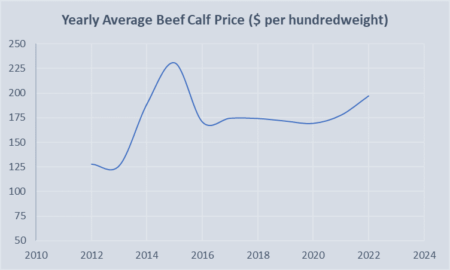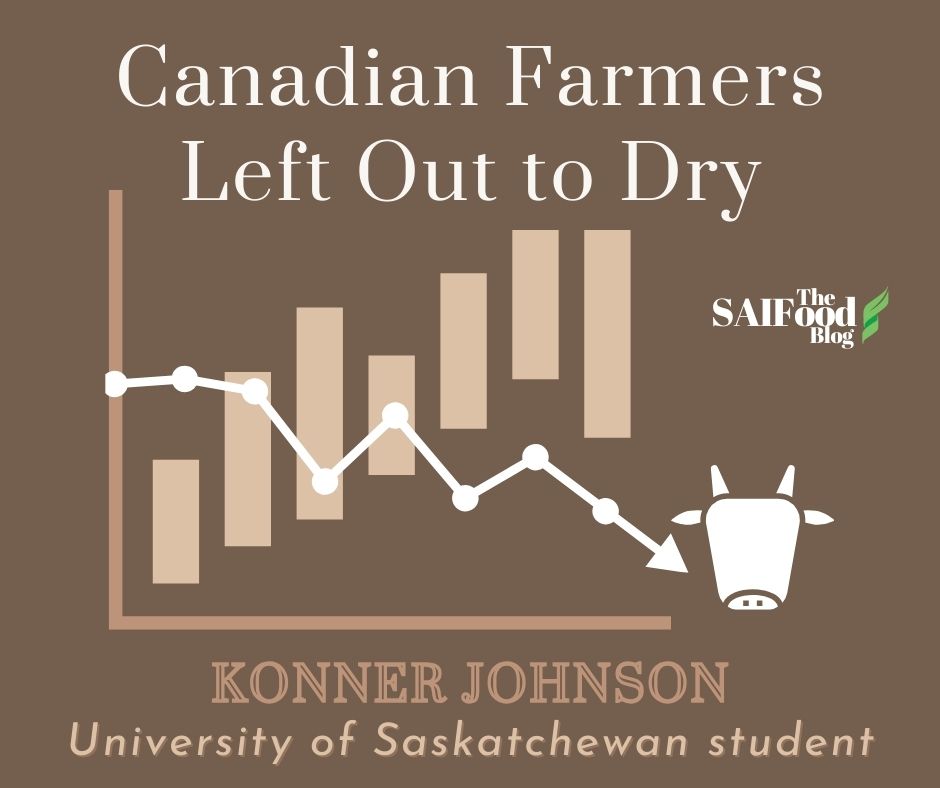By Konner Johnson
University of Saskatchewan student
Background
Canadian beef production is extremely important as each year it contributes an estimated $22 billion to the economy and provides over 228,000 jobs for Canadians. Beef production can be a very rewarding and fulfilling lifestyle, but nobody ever said it was easy. For Canadian beef farmers, it only seems to get harder year after year. Many areas of the prairies have experienced severe drought over the last few years which has impacted both grain and cattle farmers. This has forced producers to rely on insurance programs to make ends meet. My family has deep connections to the beef industry and the past few years have really highlighted how differently the Canadian government supports these two industries. This is an important topic surrounding agriculture as desperate times have now unveiled the bias towards grain farming.
Lack of Government Support
For grain farmers, crop insurance is an affordable and sensible way to protect themselves from the unpredictability of mother nature. In most programs, the insurance premium is shared between the producer and both the federal and provincial governments; currently in Saskatchewan, producers pay 40%, the government of Canada pays 36%, and the government of Saskatchewan pays the remaining 24%. This makes premiums more affordable and allows over 80% of producers to be involved in the insurance program and reduce their overall risk. For cattle farmers, this is not the case as currently over 50% of beef farmers do not partake in livestock insurance. Most of these producers say the extremely high premiums, which force cattle ranchers to pay the full price of the insurance premium, with no input of government funds, make it impossible for them to justify the cost.
The lack of government support towards cattle farmers along with increased grain prices have resulted in more farmers working up pastureland for grain farming. Agriculture census data indicates that the number of farms with beef cattle declined from 61,425 in 2011 to 54,517 in 2021, a loss of about 7,000 farms. Another factor that contributes to land use change is the recent $150 million government grant to Protein Industries Canada, aiming to make Canada a global leader in plant-based proteins. This has only encouraged more farmers to end the cattle business and use their land solely for grain farming.

There is simply no security in cattle farming as the government has refused to support the beef industry. Cattle prices have been consistently poor for the past six years until recent improvement as seen in Figure 1. However, this needed to happen as the cost to raise cattle has persistently increased due to higher input costs. Cattle farmers have struggled to find profits in the last few years and most of them have been unable to turn to insurance programs, unlike their grain farming peers.
What Needs to Happen?
To keep family farms in the Canadian beef industry, the government needs to incentivize the industry some way. If they are capable of donating hundreds of millions of dollars to support the plant-based foods sector, they should also support the beef sector. The very recent increase in beef cattle prices has certainly helped, but more government funding should be used to support producers. Beef production is dominated by family farms as there are over 60,000 cattle farms in Canada with an average herd size of 69. If you know someone involved in cattle farming, you understand the time commitment and how their lives revolve around the cows. If the government were able to provide funding to reduce livestock insurance premiums, more of these families would stay in the business which is extremely important for the Canadian economy.
Biography
 My name is Konner Johnson and I am a student athlete at the University of Saskatchewan. I am currently finishing my B.S.A Agronomy degree and working towards a B.Sc. Agribusiness degree. I grew up in Melfort, Saskatchewan where I now work on my uncles mixed cattle and grain farm during the summers. My main hobby is football where I played for the Saskatoon Hilltops and now the University of Saskatchewan Huskies.
My name is Konner Johnson and I am a student athlete at the University of Saskatchewan. I am currently finishing my B.S.A Agronomy degree and working towards a B.Sc. Agribusiness degree. I grew up in Melfort, Saskatchewan where I now work on my uncles mixed cattle and grain farm during the summers. My main hobby is football where I played for the Saskatoon Hilltops and now the University of Saskatchewan Huskies.

